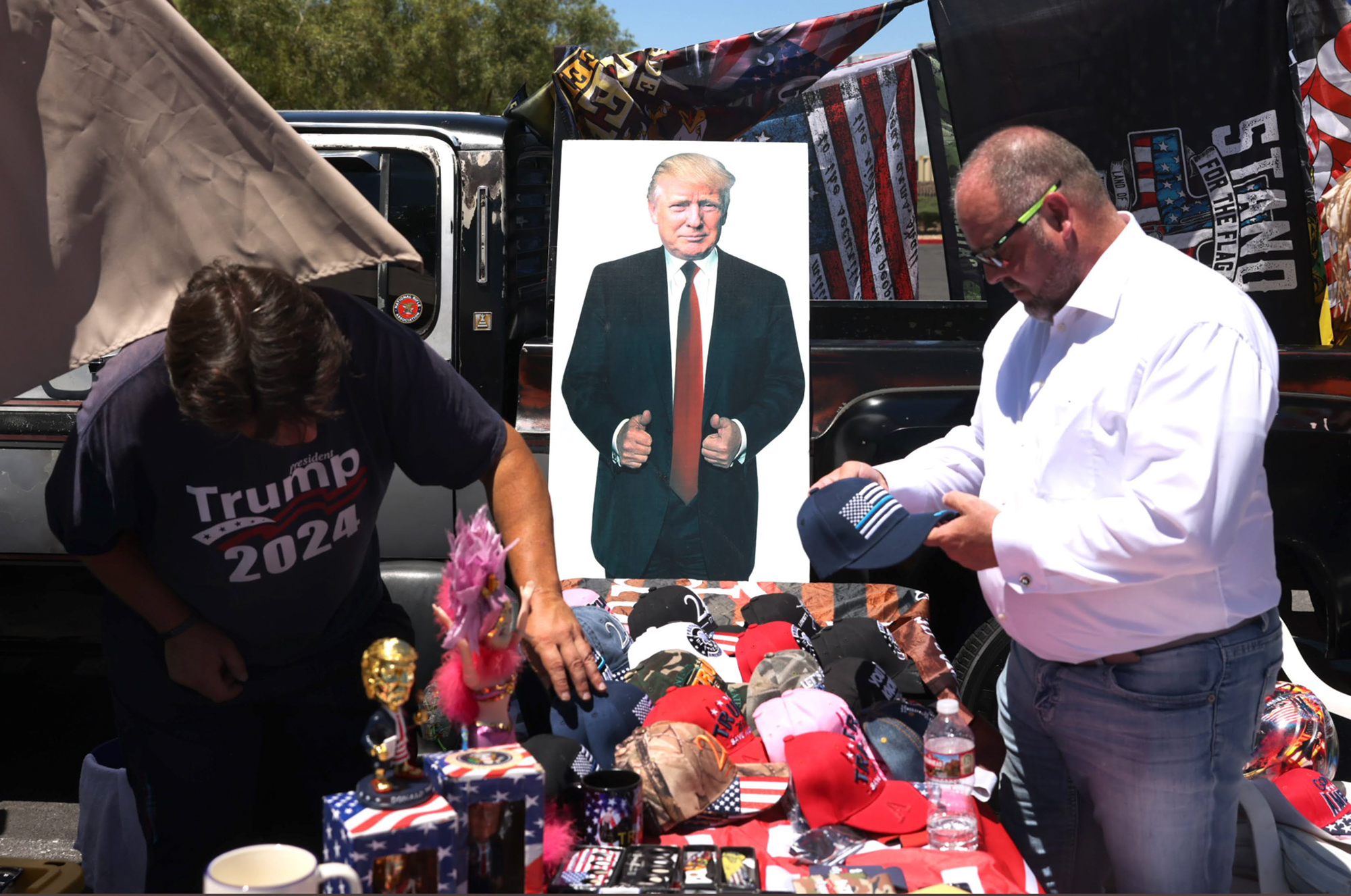With 2023 behind us, it’s now time to brace ourselves for the start of what is bound to be another wild year plagued by the exhaustion of insufferable partisan politics.
Indeed, the political madness has already begun, with two states deciding to use Section 3 of the 14th Amendment to exclude former president Donald Trump from Republican primary ballots — as if the presumptive GOP frontrunner wasn’t already spending enough time in court.
The decision by officials in both states to deny the former president ballot access has been widely criticized on due-process grounds, even among those who are no fans of Trump. Nonetheless, reasonable and nuanced analysis of the issue is decidedly difficult to find given the intense polarization and partisanship of our era. Like most other issues in modern politics, much of the discourse surrounding the issue is little more than political pandering and manufactured outrage designed to generate support (or opposition) among certain partisan factions.
And, unfortunately, even after the courts eventually weigh in on the issue, such nonsense isn’t going to abate.
For those who want Trump taken off the ballot, the Supreme Court will be seen as irredeemably biased if they find the states to be in the wrong. If his removal is upheld by the high court, on the other hand, the Trumpian wing of the GOP will undoubtedly be enraged at the “deep state.”
In either case, the losing side is not likely to consider the possibility that their partisan legal interpretations were merely wrong — they will instead double down on their outrage and rhetoric to galvanize their base.
In other words, we’re in for one hell of a start to the upcoming presidential election year and we haven’t even really started. After all, we still have to endure months of primary battles before the general election finally comes into shape — and here in Nevada that will be its own particular brand of crazy, given the GOP’s ill-advised decision to move forward with a caucus.
While the nation’s high court will likely be deciding whether or not Trump appears on the ballots in Colorado and Maine, in Nevada he’s guaranteed to be absent from the state-issued primary ballot — as will five other candidates for that matter. And the reason is simple: The Nevada Republican Party has required those candidates to shun the primary system entirely.
As part of the GOP’s decision to move forward with a caucus, candidates taking part have been precluded from filing for the state’s primary. As a result, the bulk of leading GOP candidates have opted to only take part in the caucus, leaving Nikki Haley as the only actively campaigning, big-name candidate voters will see when the state mails out primary ballots in early 2024.
Given the way Colorado and Maine will be dominating the news cycle over the course of the next few months, one has to wonder how many poorly informed Republican voters will assume something sinister is afoot when they receive a Republican primary ballot in the mail that doesn’t include many of the top candidates for president.
Clearly, from foreign affairs to local politics, there will be plenty of absurd political moments to chronicle as the months roll on in 2024 — and much of the discourse surrounding such news will be equally outrageous.
No wonder recent polling by The Harris Poll found that a great many Americans are trying to avoid political discussions altogether nowadays. That survey found a whopping 84 percent of Americans try to keep their political views quiet — even among close family and friends. A small majority (51 percent) of 18-25-year-olds has even skipped family gatherings in an effort to avoid discussing politics with those who don’t share their beliefs.
Looking at the last several years of political polarization — and how much worse it will likely get in the year to come — it’s easy to understand why so many Americans are actively avoiding uncomfortable conversations about public affairs. It simply feels impossible to discuss such things calmly, respectfully and intelligently when everywhere we look people are shouting at one another in blind partisan rage.
However, we should remember that the division, polarization and contempt we witness on the news, on social media and in political campaigns isn’t reflective of the way most Americans truly feel. Our public discourse is dominated by the loudest partisan cheerleaders, grifters and opportunists — crowding out more reasonable voices and leaving little room for nuanced and civil discussions between well-intentioned individuals.
Ordinary voters, on the other hand, are far more interested in productive debates than what’s often peddled by cable news and social media influencers. As The Harris Poll pointed out, more than three-in-four Americans prefer open discussions with those who have different viewpoints, and a majority (56 percent) “wish they could better communicate across the political divide.”
Clearly, there’s a real desire among most Americans to civilly discuss our most contentious and controversial issues — we simply don’t know how to do so in our current social environment. As a result, reasonable voices simply don’t dominate public discourse. Instead, political discussions are driven largely by a small but loud minority of activists, politicos and pundits who thrive off the chaos of partisan animosity and contempt.
And, unfortunately, the year ahead is going to give them plenty to keep shouting about.
Michael Schaus is a communications and branding expert based in Las Vegas, Nevada, and founder of Schaus Creative LLC — an agency dedicated to helping organizations, businesses and activists tell their story and motivate change. He has more than a decade of experience in public affairs commentary, having worked as a news director, columnist, political humorist, and most recently as the director of communications for a public policy think tank. Follow him at SchausCreative.com or on Twitter at @schausmichael.

